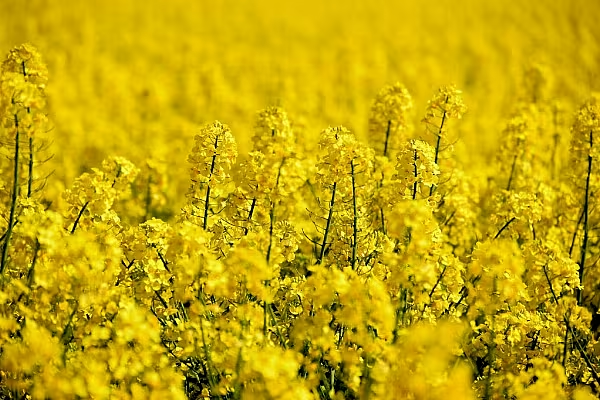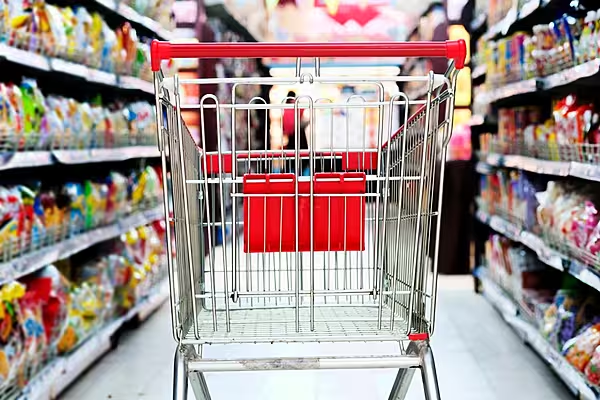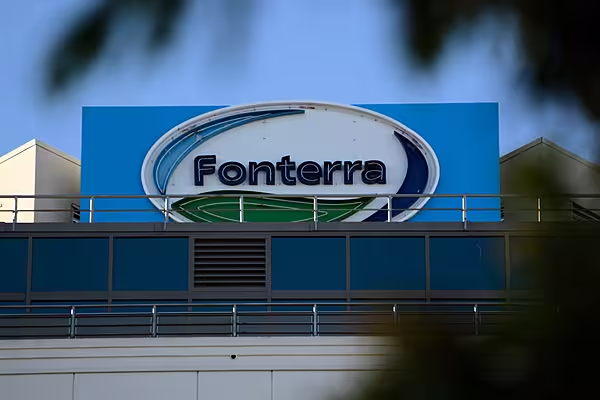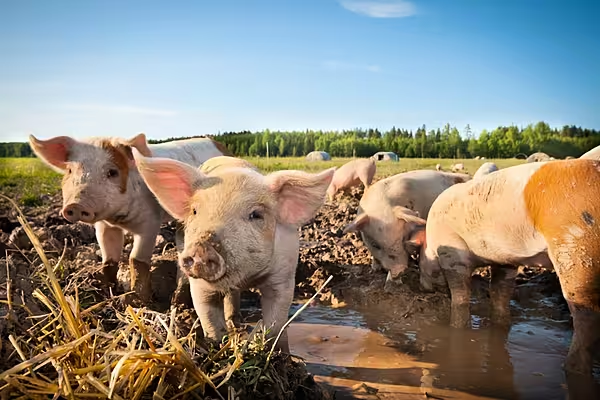Rapeseed prices are surging to record highs as traders scour the world for supplies of the oil-rich crop, illustrating growing strain across oilseed markets exerted by booming Chinese demand.
The scarcity of rapeseed, the yellow-flowered crop processed to make oil for cooking, biodiesel fuel and protein meal for livestock, has coincided with reduced supplies of soybeans, sunflower and palm oil.
As a result, oilseeds are a major factor in the United Nations' global food commodity price index reaching a 6-1/2 year high, prompting some individual governments such as Russia to impose measures aimed at curbing grain exports.
Tight Supply
Poor harvests in Canada and Europe have also tightened supplies with stocks held by major exporters seen falling sharply to an eight-year low by the end of the current 2020/21 season, according to the International Grains Council.
Rapeseed prices in Europe are booming, with Euronext futures reaching a record high of 528.75 euros ($629.05) a tonne on Monday, up around 40% since the start of the season on July 1, 2020.
Available supplies of canola, a variety of rapeseed, in top exporter Canada have fallen particularly sharply, fuelling a surge in benchmark Canadian futures to record highs last month.
"There's just a massive lack of vegoil supply," said Uros Vukov, a commodities broker at StoneX in Montreal.
Opportunity For European Exporters
In China, low inventories, record prices for rapeseed oil futures on the Zhengzhou Commodity Exchange and political tensions with Canada have created an opportunity for European exporters.
Traders have reported sales of European Union rapeseed oil to China of around 200,000-300,000 tonnes for the coming months even as companies step up imports of rapeseed into the EU.
That would mark a further acceleration in EU rapeseed oil shipments to China that are already up around 40% so far this season at about 130,000 tonnes.
"Boosted by the rise of soyoil and palm oil (prices), and the fact that domestic inventories of oils and fats are also low, rapeseed oil prices are expected to continue maintaining their strength," said Wang Yujie, edible oils analyst at Orient Futures.
Chinese demand has contributed to a ramp-up in EU rapeseed crushing, which hit record volumes in January according to vegetable oil industry group Fediol.
Australian Armada
For merchants in Europe, soaring vegetable oil prices, with rapeseed oil prices in Rotterdam at 10-year highs, have made it profitable to sell oil.
"Seed prices are high but so are oil prices so that is an incentive to crush," a European trader said.
"It's going to be tight covering consumption with supply that is low. The question is now about Australian supplies arriving."
A bumper Australian rapeseed harvest is expected to provide an influx of imports for Europe in the coming months, as supplies from Canada and Ukraine dry up.
Australia could ship over 2 million tonnes to the EU over January-July, contributing to record projected EU imports in 2020/21, analyst firm Oil World forecasts.
Developments in other oilseeds might also ease tensions in rapeseed.
The arrival of a weather-delayed South American soybean harvest, an expected increase in spring planting of oilseeds in North America and the Black Sea region, and improved palm oil production could curb interest in scarce rapeseed.
Widening Price Premium
In China, a widening price premium over other edible oils should limit rapeseed oil consumption, Wang said, adding relations with Canada, which soured over the arrest of a Huawei executive, will continue to influence rapeseed imports.
Like in other oilseed markets, however, rapeseed prices are not expected to fall back dramatically as supply issues spill over into next season.
Canadian farmers are seen expanding rapeseed plantings. But a potentially bigger 2021 crop will only come after stockpiles have shrunk to an expected eight-year low at the end of this season, according to an official estimate.
A drought-hit rapeseed sowing campaign in Ukraine and the EU has clouded production prospects in Europe, and new-crop EU prices are at their highest in years well above 400 euros.
"Upward price potential is still very much there as the road to the next harvest remains long," consultancy Agritel said.













